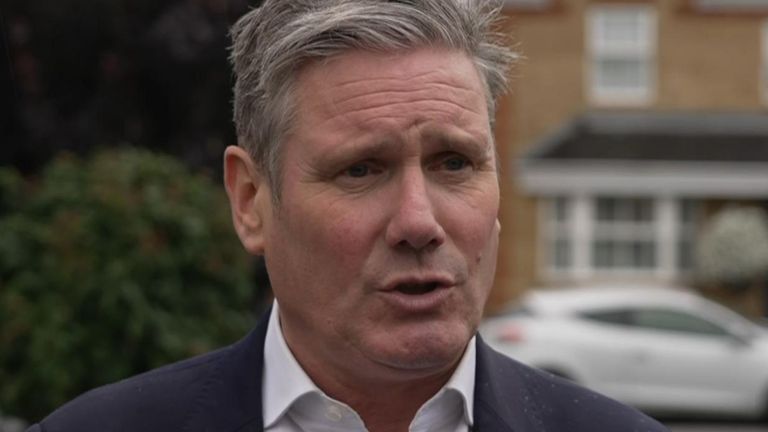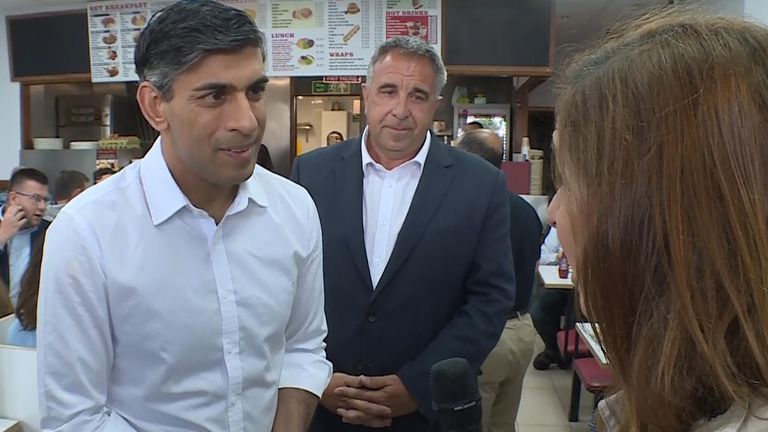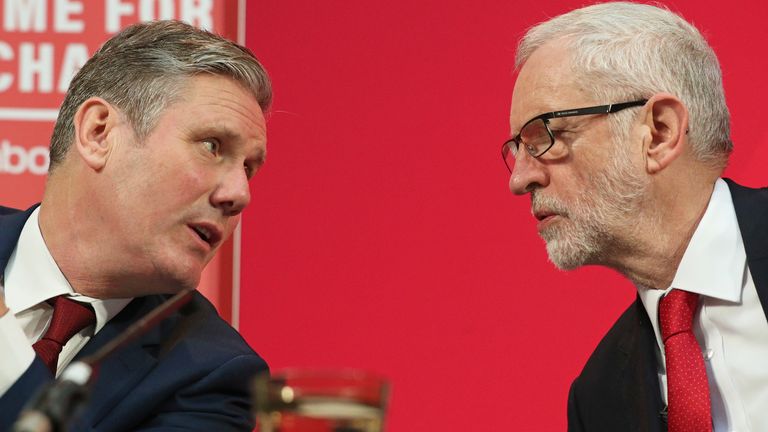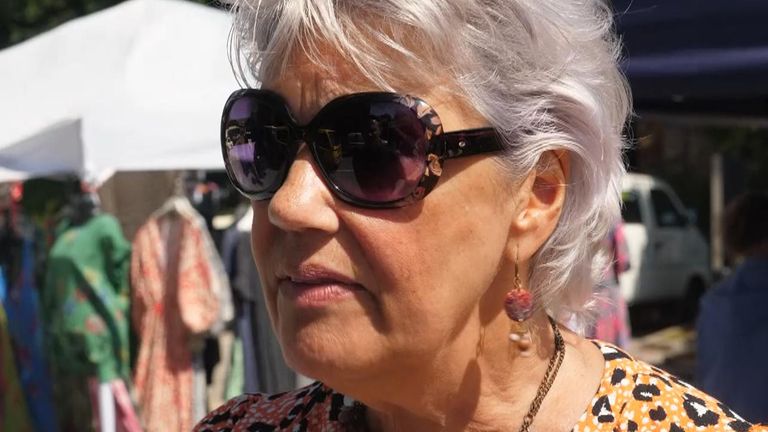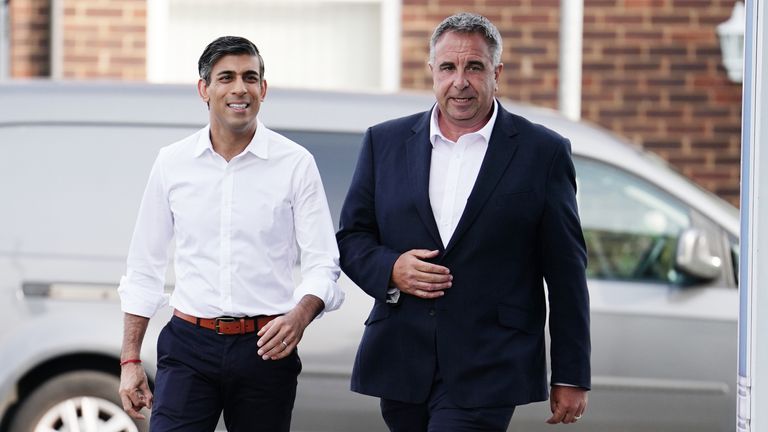The next general election is only 17 months away at most. It is already seen as a “change election” – meaning that, on the basis of opinion polls and recent political contests, the party in power is likely to switch.
Conventional wisdom is that the Conservatives will most likely be out after 14 years continuously in power.
That outcome is of course in the lap of the electorate and cannot be taken for granted.
But it is the basis on which individual MPs make calculations about their futures.
Before any seats change hands, we can already say that there will be at least 75 new faces in the 2024/25 parliament.
That’s because 75 current members have already announced that they are not standing – and more than 50 of them were elected as Conservatives. A further 14 Labour MPs are stepping down, with seven from the SNP.
The overall turnover of MPs will be much larger anyway if is a change election.
The pollster Frank Luntz recently warned Tory MPs that any of them with a majority less that 15,000 is “at risk”. There are around 180 in that category – half the current parliamentary party.
Now is the time when the main parties are choosing the candidates to fight the coming election in the seats they hold, the seats they regard as winnable and the seats viewed as not worth wasting further resources on.
The types of candidate being chosen, especially in their safe or target seats, tells us a lot about what a party will be like in government or in opposition after the next election.
Since becoming Labour leader in 2019, Sir Keir Starmer has devoted more energy to exerting iron discipline on his party after the Jeremy Corbyn years than to developing radical new policies.
True to form, Labour is ahead of the Conservatives in choosing its prospective parliamentary candidate – more than halfway through – with more than 100 of an expected 200 of so new PPCs in place.
Of course, not all of them are first timers. Re-treads include the former Cabinet minister Douglas Alexander, who is hoping to win back East Lothian from the SNP, Anna Turley fighting to regain her Red Wall seat of Redcar and former Wolverhampton MP Emma Reynolds, who is now standing in Wycombe.
These three ex-MPs embody the middle-aged, middle-of-the-road cut of the Labour candidates being selected. Only about one in 20 of them are below the age of 30.
In spite of the recent by-election victory by the new Baby of the House, Labour’s Keir Mather, parliament is not proving welcoming for younger members. Those standing down include two young MPs who had been picked out as rising stars.
The SNP’s Mhairi Black calls Westminster “toxic”, Bishop Auckland Tory Deheena Davison finds it “unsociable”.
The Labour leadership are ruthlessly weeding out left-wing candidates.
Suspension from the party is the most brutal method. Jeremy Corbyn is no longer a member of Labour so he cannot stand as one of their candidates at the next election. His dwindling band of supporters in the Commons have been carefully biting their tongues to avoid joining him in the reject bin.
Before constituency parties get to vote on their candidate, a panel made up of trusted members of Labour’s National Executive (NEC) and local supporters draws up a “long list”.
As serving Mayor Jamie Driscoll found out to his cost in a similar process to select a candidate for the new mayor of the North East, this is how strong candidates not liked by the leadership can be excluded.
Read more:
Are MPs getting younger?
MPs who have said they are standing down
Mish Rahman, a current member of the NEC supported by Momentum, is a typical example of the sort of PPC that Sir Keir does not want. He was blocked in the highly win-backable seat of Wolverhampton West in spite of being backed by five trade unions. He commented he was not surprised since none of his fellow “Bernie Grant Leadership” alumni have been selected. That programme, in memory of the black far-left Tottenham MP, was set up to promote candidates of his ilk.
Labour’s stand out PPC selection this time round typifies the change of mood. Charlie Falconer had to be sent to the House of Lords to serve in the Blair government. He refused to take his children out of private school and no constituency would have him.
Now the product of that public school education, his son Hamish Falconer – a well-regarded diplomat in his own right – has been selected as Labour candidate in marginal Lincoln.
Sir Keir Starmer and his closest aides – including Morgan MacSweeney, Matthew Faulding, Carol Linforth, David Evans and Marianna McFadden – are right to be careful.
Their opponents will target candidates with “extremist” skeletons in their closet.
Nadine Dorries has not yet stood down as promised to trigger the by-election in her Mid Bedfordshire constituency.
The Daily Mail has already exposed Labour’s clean-cut candidate Alistair Strathern for taking part in a Greenpeace protest at the Home Office, dressed as a zombie.
A few places demand a high-profile and colourful candidate. The retiring Green MP Caroline Lucas has made Brighton Pavilion one of those constituencies. The Greens have already chosen Sian Berry, one of their other best-known politicians, to defend it for them.
The comedian Eddie Izzard, who has failed to be selected elsewhere numerous times, has local connections and is fighting hard for the Labour nomination.
The number of LGBT+ MPs now stands at a record 61 and is set to remain strong. Women and ethnic minorities are doing loess well.
Tory strategists at the centre wish they had the same grip on candidate selection as Labour, but they don’t. Just about the leadership’s only success has been blocking any candidacy by the former MEP and the serially disloyal Boris Johnson supporter David Campbell Bannerman.
After the turmoil of five prime ministers there is no centre, respected by all, to exert control.
PPCs are chosen by constituency associations whose members are the people who voted for Boris Johnson and Liz Truss and did not vote for Rishi Sunak.
The Tory Party factions are fighting out their differences in selections, constituency by constituency.
Unlike Labour they are choosing candidates who appeal to themselves, with little regard to who might attract floating voters in the centre ground.
Tory activists have already picked out two PPCs who they expect will still be battling for the soul of the party in a decades time.
In the One Nation corner stands Rupert Harrison, the PPC for Bicester, an old Etonian and former close aide to chancellor George Osborne. He looks like what Barbie’s Ken would look like were he to be a middle-aged Tory candidate.
The Nativist Brexiteer Corner is occupied by the cerebral and sometimes bearded Nick Timothy, who has taken over in Matt Hancock’s old constituency in Suffolk.
Male, middle-aged, middle class, there is a similarity in the profile, if not the politics, of the candidates being chosen by the two main parties.
Both of them now place a premium on the candidate having a local connection.
It is much harder for bright politically ambitious young people to shop around for a seat – even though some of them in the past have proved of prime ministerial calibre – like Churchill or Blair or Johnson.
The ConservativeHome website reports that in 12 winnable target seats, eight of the PPCs were local councillors, two more had local connections and only two were women.
Those following the selections most closely, including the journalist Michael Crick on his @tomorrowsMPs X (formerly Twitter) page and the Professor of Politics Tim Bale, believe that insistence on the local factor is seriously diluting the quality of the people who are becoming MPs.
Whether or not we are heading into a change election, we know already that there will be lots of new faces. They won’t look much different to those they are replacing and it is a fond hope whether they will be any better.

